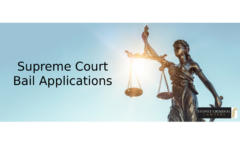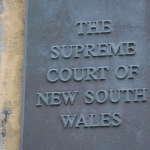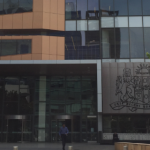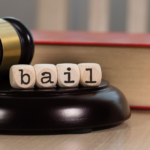Supreme Court Bail Applications in New South Wales

A Supreme Court bail application will normally be made after bail has been refused by a police offer after the arrest and charge process, and thereafter by a magistrate in the Local Court, or layer by a judge in the District Court.
Also known as a ‘release application’, the mechanism seeks to have a person released from custody on certain bail conditions, which may include reporting to a police station between certain hours on specified days of the week, surrendering their passport so as to make it more difficult to travel abroad, refraining from contacting particular persons such as the complainant or witnesses, not entering certain places and/or having a surety deposit an amount of security to the court.
What are the powers of the Supreme Court in terms of bail?
Section 66 of the Bail Act 2013 (NSW) gives the Supreme Court the power to determine a bail application after the applicant has been refused release by an authorised officer such as a police officer, or by a lower court, such as the Local or District Court.
The Supreme Court will hear the application afresh – meaning it will not need to rely on what was handed-up or said in the lower court – and can either grant or refuse bail.
How many Supreme Court bail applications can be made?
Generally, only one application for bail can be made at any level of the court hierarchy, including the Supreme Court.
However, section 74 of the Bail Act provides that a further application may be heard in the same court where:
- The applicant was not legally represented when the previous application was made and he or she subsequently retains a lawyer,
- Material information relevant to the grant of bail will be presented which was not before the court at the previous application,
- Circumstances relevant to the grant of bail have changed since the previous application was made, and/or
- The applicant is a child and the previous application was made on the first court date.
Procedure for making a Supreme Court bail application
There are four general steps in making a Supreme Court bail application in New South Wales, which are:
- Preparing and filing a Supreme Court bail application form
The form can be accessed here and must be fully completed.
The filed application must include information such as:
- the applicant’s intended residential address,
- the person/s with whom the applicant intends to live,
- the legal representative’s details,
- the charge/s for which bail is applied,
- the date and reason for next court date,
- the JusticeLink number for the proceedings,
- the proposed bail conditions,
- the details of any proposed surety or sureties,
- any letter/s or affidavit/s from a proposed surety or sureties,
- any character references,
- any medical or mental health reports,
- any other supporting materials, and
- the reasons as to why bail should be granted.
The completed form can be emailed to sc.bails@justice.nsw.gov.au
Lawyers who are representing bail applicants must serve the completed application on the opposing party which:
- for New South Wales state charges will be the NSW Office of the Director of Public Prosecutions, at bails@odpp.nsw.gov.au or Locked Bag A8, Sydney South 1232, or
- for federal charges will be the Commonwealth Director of Public Prosecutions, at sydneycourtliaison@cdpp.gov.au or Locked Bag A4020, Sydney South 1235.
- Callover and Hearing date
Once the completed application is received and reviewed, dates will be set for:
- the ‘callover’, which is a short administrative court date to ensure all is in order and both parties – the applicant and the Crown – are ready to proceed to hearing, and
- the ‘hearing’ date, which is the day on which the application is actually heard by the court.
- Callover date
At the callover, the applicant and Crown will inform the court as to whether they are ready to proceed to hearing.
If so, the hearing date will be confirmed. If not, a different hearing date may be set or the hearing may be vacated (cancelled) altogether.
- Hearing date
The hearing date is when the justice reviews all of the materials, hears any additional verbal submissions and decides whether to grant or refuse bail.
If bail is granted, the court will also set down the conditions that attach to bail.
What are the tests applied during a Supreme Court bail application?
The tests applied by the Supreme Court are the same as those applied in the lower courts.
Test 1: Show cause test
The first matter to determine is whether the circumstances require the application of the ‘show cause test’.
In that regard, section 16A of the Bail Act provides that a court must refuse bail to an adult applicant unless he or she shows cause as to why detention is not justified.
Section 16B of the Bail Act sets out the alleged offences as well as the circumstances that trigger the requirement to show cause.
It provides that the show cause test is activated where there is:
- An offence punishable by life in prison,
- A serious indictable offence (which is an offence punishable by at least 5 years in prison that involves sexual intercourse or the infliction of actual bodily harm with intent to have sexual intercourse by an adult against a person under the age of 16 years,
- A serious personal violence offence (being a NSW offence against a person under Part 3 of the Crimes Act 1900 punishable by at least 14 years in prison or a similar offence of the Commonwealth or another state or territory) or an offence involving wounding or grievous bodily harm where the applicant was previously convicted of a serious personal violence offence,
- A serious indictable offence under Part 3 or 3A of the Crimes Act 1900, or in the Firearms Act 1996 which involved the use of a firearm,
- An indictable offence (which is an offence capable of being committed to a higher court involving the unlawful possession of a pistol or prohibited firearm in a public place,
- A serious indictable offence under the Firearms Act 1996 which involves acquiring, supplying, manufacturing or giving possession of a pistol or prohibited firearm, or firearm part that relates solely to a prohibited firearm,
- A serious indictable offence under Part 3 or 3A of the Crimes Act 1900 or under the Weapons Prohibition Act 1998 that involves the use of a military-style weapon,
- An indictable offence that involves the unlawful possession of a military-style weapon,
- A serious indictable offence under the Weapons Prohibition Act 1998 that involves buying, selling or manufacturing a military-style weapon or selling, on 3 or more separate occasions, any prohibited weapon,
- An offence under the Drug Misuse and Trafficking Act 1985 that involves the cultivation, supply, possession, manufacture or production of a commercial quantity of a prohibited drug or prohibited plant within the meaning of that Act,
- An offence under Part 9.1 of the Commonwealth Criminal Code that involves the possession, trafficking, cultivation, sale, manufacture, importation, exportation or supply of a commercial quantity of a serious drug within the meaning of that Code,
- A serious indictable offence alleged to have been committed while the applicant was the subject of an arrest warrant,
- An indictable offence, or an offence of failing to comply with a supervision order, committed by an accused person while subject to a supervision order, or
- serious indictable offence that was allegedly committed by the applicant while on bail or parole.
The section also encompasses attempts to commit any of the described offences, or assisting, aiding, abetting, counselling, procuring, soliciting, being an accessory to, encouraging, inciting or conspiring to commit any of the offences.
A number of recent cases have made clear that the show cause test does not require the applicant to demonstrate something special or exceptional about his or her situation, and that factors which would not individually amount to showing cause can, taken together, result in the requirement being overcome.
Test 2: Unacceptable risk test
In the event the show cause test is overcome or does not apply, the next step is to apply the ‘unacceptable risk test’.
This test is contained in section 17 of the Bail Act which provides that before deciding whether or not to grant bail, a court must assess whether, if released from custody, the applicant will:
- Fail to appear in court,
- Commit a serious offence,
- Endanger the safety of complainants, individuals or the community, or
- Interfere with witnesses or evidence.
The test stipulates that where bail conditions can overcome the risk of these situations occurring, the applicant is to be granted bail.
Conversely, if bail conditions are unable to overcome the risk and the risk is therefore unacceptable, the applicant is to be refused bail.
What matters will the Supreme Court consider when determining bail?
Section 18 of the Bail Act makes clear that all courts, including the Supreme Court, must consider the following matters, where relevant, during when considering the risk if the above bail concerns:
- The applicant’s background, including criminal history, and community ties,
- The nature and seriousness of the alleged offence/s,
- The strength of the prosecution case,
- Whether the applicant has a history of violence,
- Whether the applicant has previously committed a serious offence while on bail,
- Whether the applicant has previously complied with orders such as bail conditions, parole conditions, apprehended violence orders, good behaviour bonds, community service orders, conditional release orders and supervision orders,
- Any warnings by police or other bail authorities that the applicant has failed or was about to fail to comply with a matter that is relevant to a bail concern,
- Whether the applicant has criminal associations,
- The length of time the applicant is likely to spend in custody if bail is refused,
- The likelihood of a custodial sentence if the applicant is convicted,
- Where the applicant has been convicted and the matter has been set down for sentencing proceedings, the likelihood of a custodial sentence being imposed,
- Where the applicant has been convicted and sentenced, and an appeal has been filed, whether that appeal has a reasonably arguable prospect of success,
- Any special vulnerability or needs of the applicant including due to his or her youth, being a First Nations person, or having a cognitive or mental health impairment,
- The applicant’s need to be free to prepare for his or her appearance in court or to obtain legal advice,
- The applicant’s need to be free for any other lawful reason,
- The applicant’s conduct towards the victim/s, or any family member/s or the victim/s, after the alleged offence/s,
- In the case of a serious offence, the views of any victim/s, or any family member/s of the victim/s, to the extent this is relevant to a concern that the applicant may endanger the safety of a victim/s, individuals or the community,
- The bail conditions that are available to address any bail concerns,
- Whether the applicant has associations with a terrorist organisation/s,
- Whether the applicant has made statements or carried out activities advocating support for terrorist acts or violent extremism,
- Whether the applicant has associations or affiliation with any person/s or group/s advocating support for terrorist acts or violent extremism,
- Whether the alleged offence is considered to be a serious offence due to, among any other relevant things, its sexual or violent nature, or the fact it involves an offence weapon or instrument, or has a likely effect on any victim/s and the general community, or the alleged offences are numerous.
Bail Applications to the New South Wales Court of Criminal Appeal
The New South Wales Court of Criminal Appeal (NSWCCA) is a division of the Supreme Court and is the highest criminal court in the state.
Section 67 of the Bail Act provides that a person can apply to the NSWCCA for bail in the following situations:
- Where the court has ordered a new trial which has not yet commenced,
- Where the court has made an order to continue committal proceedings,
- Where the court has directed a stay of execution of a conviction which is in force,
- Where an appeal from the court to the High Court is pending, or
- Where a bail decision has been made in the Supreme Court or Land and Environment Court, and the application is to be heard other than by a judge of the NSWCCA alone.
Refused bail in the Local or District Court?
If your friend or loved-one has been remanded in custody and requires representation from an exceptional team of experienced bail lawyers, call Sydney Criminal Lawyers now on (02) 9261 8881 to arrange a conference with a defence team that is regularly able to achieve bail in extremely serious and complex criminal cases, including cases where other law firms will be reluctant to make the application, or will need to engage specialist bail lawyers, or will simply will not have the specialist knowledge and relevant experience to thoroughly prepare and persuasively present the application independently in court.
Our bail lawyers represent clients for bail applications in the Supreme Court and, for your financial peace of mind, our firm undertakes all bail applications on a fixed fee basis.





